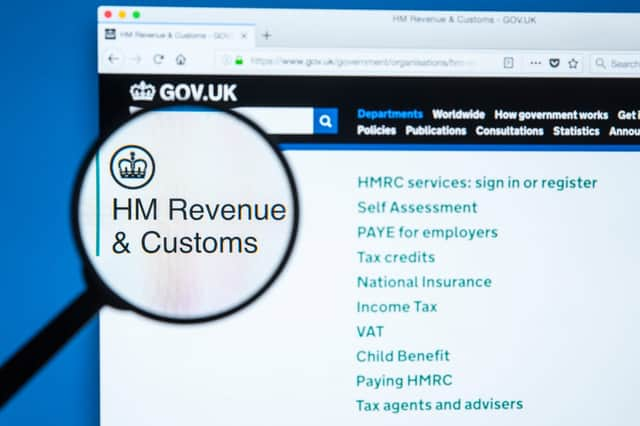Scam HMRC texts are offering a ‘third lockdown grant’ - what to look out for
This article contains affiliate links. We may earn a small commission on items purchased through this article, but that does not affect our editorial judgement.


There have been reports that people around the UK have been targeted by an HM Revenue and Customs (HMRC)-related text scam, which aims to trick recipients into giving away their bank details.
The scam comes in the form of a text message, claiming that the recipient can claim money from a fictional government grant.
Advertisement
Hide AdAdvertisement
Hide AdThe text message reportedly reads: “From HMRC: The third lockdown has been announced, we have been issued a grant off £240 to help during this period, visit to claim.”
The message is followed by a link.
Despite the fact that the message claims to be from the HMRC, the message contains a number of grammatical errors, such as the use of the word “off” instead of the word “of” - a telltale sign that this is not a legitimate message.
The website that the text links to has been created to look similar to the government website, with the same branding, layout and font choices. However, it is not hosted on the official gov.uk domain, which should be another red flag for those targeted by the scam, as it indicates that the website is fake.
The fake website also informs users that they will need to provide their card details in order to claim the grant.
Both Chrome and Safari web browsers automatically flag the website as deceptive, and inform users that it may be tricking them into disclosing their card details.
‘Do not reply to the message’
The government website has a whole section dedicated to highlighting and debunking HMRC related scams.
On this page, the government says: “HMRC will never ask for personal or financial information when we send text messages.
“Do not reply if you get a text message claiming to be from HMRC offering you a tax refund in exchange for personal or financial details. Do not open any links in the message.”
Advertisement
Hide AdAdvertisement
Hide AdThe rate of HMRC related scams has skyrocketed throughout the Covid-19 pandemic.
“If someone calls, emails or texts claiming to be from HMRC, saying that you can claim financial help, are due a tax refund or owe tax, or asks for bank details, it might be a scam,” the HMRC advises.
How to report a suspicious text message
If you have received this fake message, or any other suspicious messages relating to the HMRC, you can report them directly to the HMRC.
You can forward suspicious messages to 60599, suspicious emails to [email protected] and any suspicious phone calls via this online form.
275 Covid-19 related scams
A spokesperson for the HMRC told Sky News: “Criminals are taking advantage of the package of measures announced by the government to support people and businesses affected by coronavirus.
“Scammers text, email or phone taxpayers offering spurious financial support or tax refunds, sometimes threatening them with arrest if they don’t immediately pay fictitious tax owed.
“HMRC has detected 275 Covid-19 related financial scams since March, most by text message. We have asked Internet Service Providers to take down 254 related scam pages.
“Several of the scams mimic government messages as a way of appearing authentic and unthreatening.
Advertisement
Hide AdAdvertisement
Hide Ad“Over the last year HMRC reported 3,387 phone numbers being used in tax related phone scams to telecommunications companies for takedown, and responded to over 306,219 reports of phone scams from the public, an increase of 47 per cent on the previous year.”